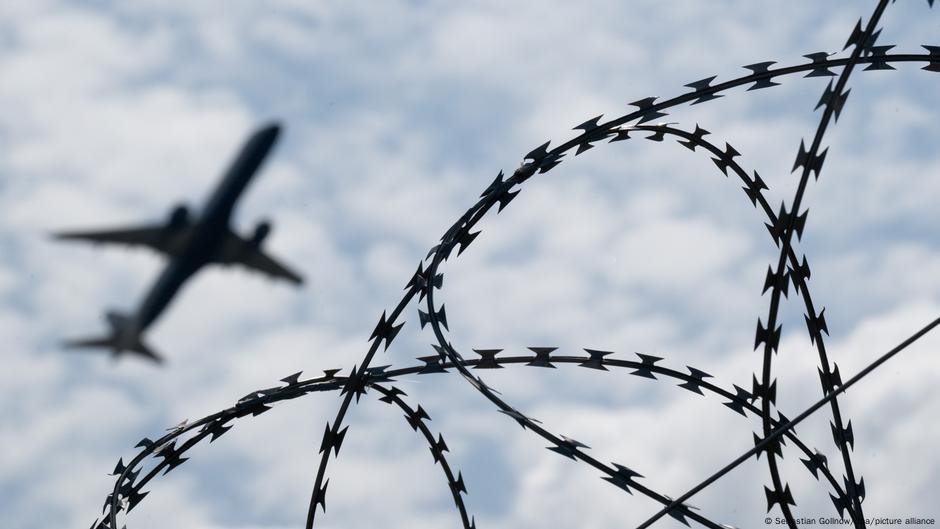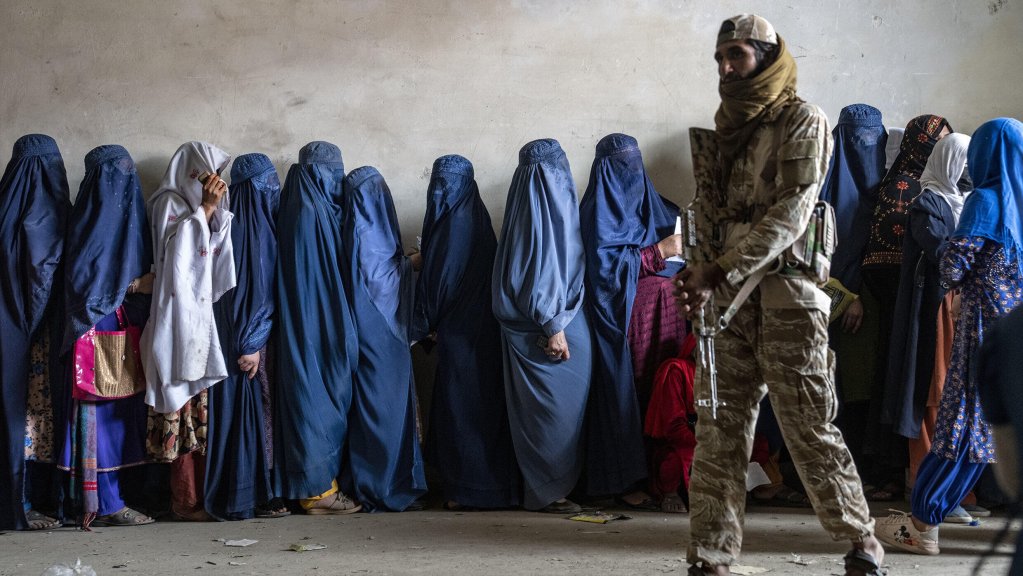After the takeover of Afghanistan by the Taliban in 2021, Germany established admission programs to protect Afghan nationals deemed at risk of persecution and those who had been employed as local staff in German institutions. The continuity of these programs is uncertain under the new coalition government bent on restricting immigration to Germany.
Flights for Afghan nationals who have received permission to enter Germany under the country’s federal admissions programs will be suspended for two weeks, news agency Reuters reported on Wednesday (April 23).
In a statement, the Federal Foreign Office said that visa procedures and security checks will still continue for the mostly former local employees of German institutions and their relatives who fall under the special admissions programs for Afghan nationals.
The announcement comes in the wake of the incoming coalition government’s draft agreement to curb irregular migration through either a restructuring of current immigration programs or the suspension of others.
The coalition agreement, which has yet to be agreed upon, states that federal admissions programs should be ''ended as far as possible''.
It is unclear whether the flights for Afghan nationals will resume under the new government.
Scramble to fly in Afghans at risk
In the past weeks, a number of chartered flights of Afghan nationals have arrived in Germany -- four flights since the election on February 23, reported Reuters. Two more flights, initially planned to land on April 23 and 29, were called off amid growing criticism from conservative politicians who claimed that the outgoing government was ''rushing'' to fly in new arrivals before it steps down in May.
"For several weeks now, we've been seeing planes arrive in Germany on a daily basis. I believe that’s wrong. It creates the impression that an outgoing federal government is trying to establish facts on the ground in its final days," Thorsten Frei, parliamentary leader of the conservative bloc, told Reuters.

The current Foreign Ministry also reportedly said that existing admission confirmations were legally binding and could only be revoked under specific conditions. This meant it could be difficult for the new government to cancel them regardless of who takes over the interior or foreign ministries.
Around 2,600 people approved for admission are currently waiting in Pakistan for a German visa and charter flights
Admissions program for Afghan nationals
After the pullout of US troops from Afghanistan in 2021, Germany stepped up to protect Afghan nationals through the establishment of several federal admission programs for those deemed particularly at risk of persecution from the Taliban, like human rights supporters and defenders, and those who worked with German organizations.
According to the Federal Foreign Office, a total of 36,000 people have entered Germany under such voluntary programmes, including a good 20,000 who were local staff and their families.

In a statement, Pro Asyl, a German NGO providing legal help to asylum seekers, warned that it would be a disgrace for Germany to halt its rescue flights under the federal admissions program.
"The German government itself has recognized their vulnerability. If the people are not taken in, Germany will ultimately hand them over to the Taliban, as they will in all likelihood not be able to stay in Pakistan, and a return or deportation to Afghanistan could mean torture or even death for the people," said Wiebke Judith, Pro Asyl legal policy spokesperson.
Afghan exodus under Taliban rule
While the Taliban takeover in 2021 following the withdrawal of US and NATO forces triggered a mass exodus, Afghans have been steadily leaving the country for years to escape the compounded hardship of armed conflict, the negative impact of climate change, and poverty.
Research by the Friedrich Ebert Stiftung showed that in the months immediately following the Taliban take over in 2021, as many as 12,000 people were fleeing Afghanistan every day.
Neighboring countries, Iran, Pakistan, and Turkey were the main transit and desintation states for fleeing Afghans.
Meanwhile, a recent study by the Migration Policy Institute showed that as of mid-2024 nearly 1 in 6 of the estimated 37.8 million refugees around the world are from Afghanistan.
The estimated 6.1 million Afghan refugees have resettled in either Iran or Pakistan. Iran hosts approximately 3.8 million refugees, 99 percent or nearly all of whom are from Afghanistan.
